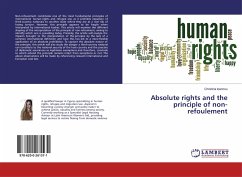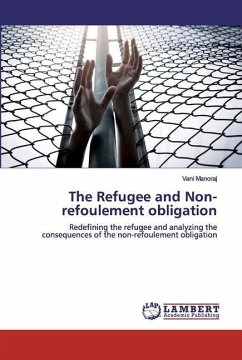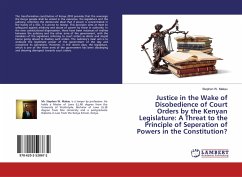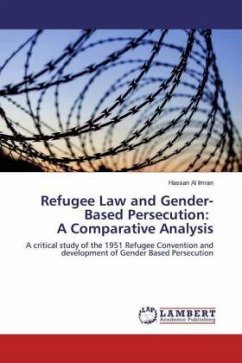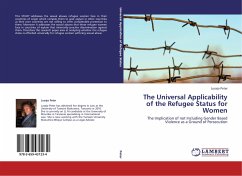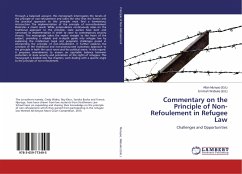
Commentary on the Principle of Non-Refoulement in Refugee Law
Challenges and Opportunities
Herausgegeben: Munyao, Allan; Wabuke, Emmah
Versandkostenfrei!
Versandfertig in 6-10 Tagen
37,99 €
inkl. MwSt.

PAYBACK Punkte
19 °P sammeln!
Through a balanced account, this monograph interrogates the tenets of the principle of non-refoulement and takes the view that the theory and the practical approach to this principle must find a harmonious intersection. The implementation of the principle of non-refoulement illustrates a mixed result. While jurisprudence continuously relies on the traditional approach to the principle, state parties have bent and narrowed its implementation in order to cater to contemporary security threats. This monograph takes the reader straight to the heart of the subject, providing a reliable and in-depth...
Through a balanced account, this monograph interrogates the tenets of the principle of non-refoulement and takes the view that the theory and the practical approach to this principle must find a harmonious intersection. The implementation of the principle of non-refoulement illustrates a mixed result. While jurisprudence continuously relies on the traditional approach to the principle, state parties have bent and narrowed its implementation in order to cater to contemporary security threats. This monograph takes the reader straight to the heart of the subject, providing a reliable and in-depth guide into refugee law by explaining the intellectual, legal and pragmatic challenges posed in interpreting the principle of non-refoulement. It further explores the concepts of the traditional and non-pronounced customary approach to the principle in both the court room and the political arena. In this regard, it proposes amendments to ensure an equitable balance between protection of state security and promotion of the rights of refugees. This monograph is divided into five chapters, each dealing with a specific angle to the principle of non-refoulement.





